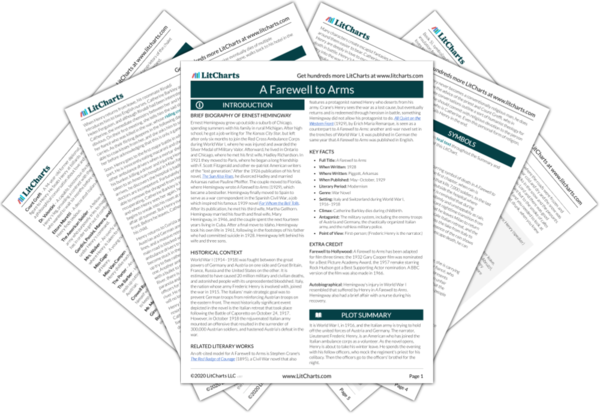A Farewell to Arms takes place in Italy during World War I, and the lives of all the characters are marked by the war. Most of the characters, from Henry and Catherine down to the soldiers and shop owners whom Henry meets, are humanists who echo Hemingway's view that war is a senseless waste of life. The few characters that support the war are presented as zealots to be either feared, as in the case of the military police, or pitied, such as the young Italian patriot Gino. To Henry, the war is, at first, a necessary evil from which he distracts himself through drinking and sex. By the end of the novel, his experiences of the war have convinced him that it is a fundamentally unjust atrocity, which he seeks to escape at all costs with Catherine.
War ThemeTracker












